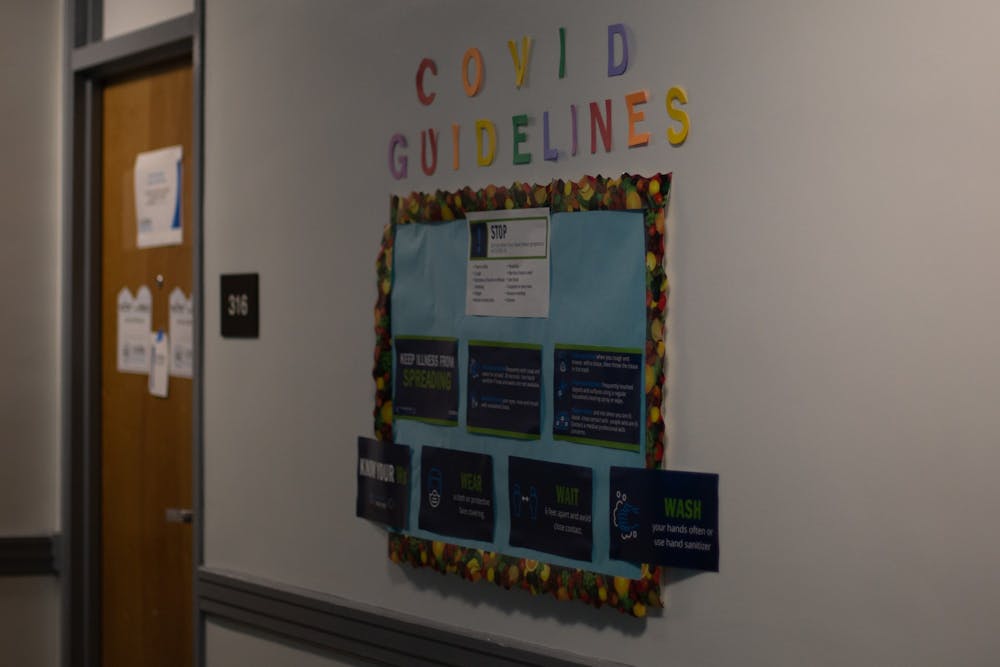The University's Residence Hall Association and Carolina Housing held a joint town hall Thursday to reflect on the on-campus housing situation in the fall semester and answer questions on future plans for campus housing in the spring.
The town hall was moderated by RHA President Kira Griffith and RHA Vice President Elli Alexander. The duo began by answering pre-submitted questions, which first revolved around Carolina Housing’s response to the pandemic in the fall semester.
Allan Blattner, executive director of Carolina Housing, said that the tight timeline for moving out in the fall semester was implemented in consideration for the good of public health.
“We’ll continue to try to have flexibility, allowance for as much time as we can reasonably afford and providing as many resources as we can to be part of any future conversations,” Blattner said.
In response to a question about confusion over information on clusters on campus, Blattner said that clusters were no longer reported on Alert Carolina as the alert system had been originally set up for emergencies.
“It's very important that communication happened in the right way and using the right channels,” Blattner said. “One of the risks in notifying the department, resident advisers and other people, is that they begin to communicate that message before students have a chance to read the University's message around a particular incident.”
He said that residents of buildings with cases were still emailed with specific instructions on what to do, and that updates were provided on the University's COVID-19 dashboard.
Questions were also raised about housing contract cancellations and refunds in the event of a shut down in the spring semester, but Blattner said that the housing department is currently unable to provide an answer.
“There's lots of things that go into that decision, including guidance from the UNC system decisions by University leadership and what that would all entail,” he said.



